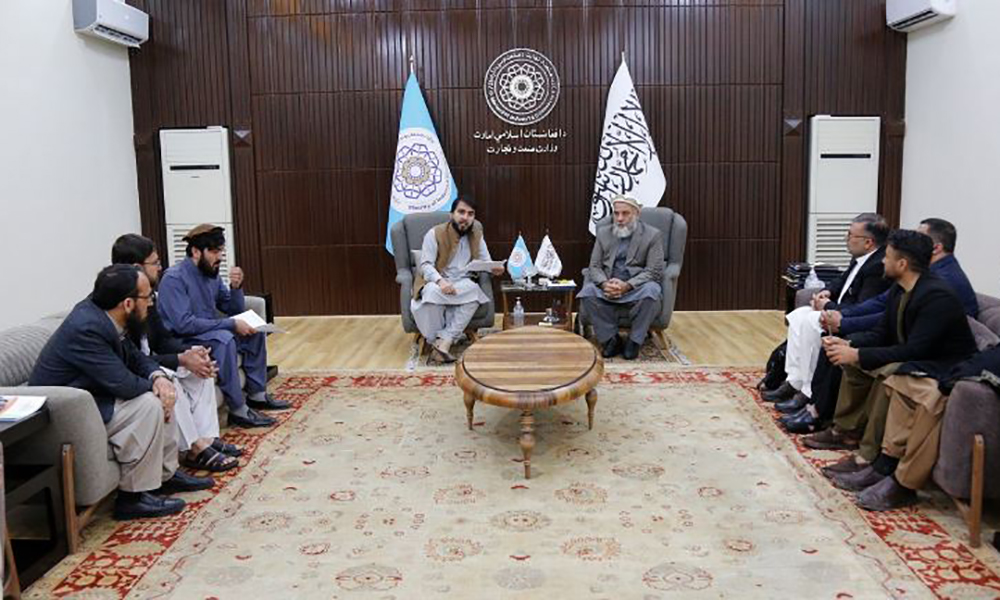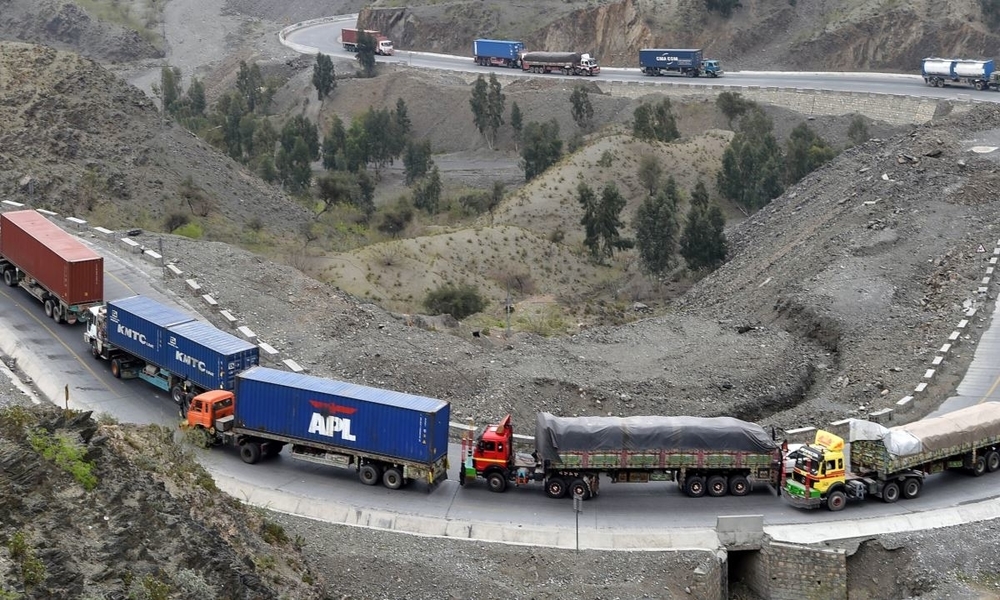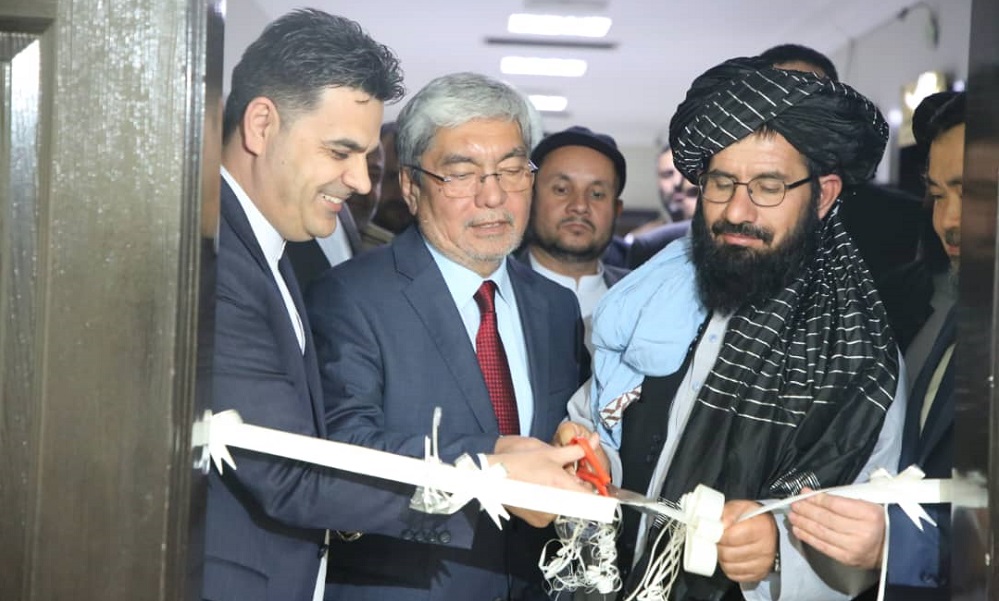Business
World Bank and ARTF approve three emergency projects totaling $793 million

The Afghanistan Reconstruction Trust Fund (ARTF) Management Committee and the World Bank this week approved three projects totaling $793 million that will provide urgent and essential food, livelihood, and health services to the people of Afghanistan.
According to a statement issued by the World Bank, all three projects will be implemented off-budget out of the interim government’s control, through United Nations agencies and non-governmental organizations. The activities are coordinated with other multilateral and bilateral funding pledges for Afghanistan, the statement read.
“These projects are designed to help women and girls benefit from project activities. Entry criteria, including the principles of equitable access for women, must be met and funds will be released in two tranches to provide the opportunity for ARTF donors to review progress on the ground and assess whether announced policies of the interim administration continue to allow the participation of women.
“All three projects also have internal fiduciary control and independent monitoring arrangements to ensure that funds are utilized for their intended purposes,” the statement noted.
The Afghanistan Emergency Food Security Project will help in the production of food crops for smallholder Afghan farmers and prevent the further deterioration of food security.
A total amount of $195 million will be released in two tranches: $150 million and $45 million, the World Bank said.
The second project, the Afghanistan Community Resilience and Livelihoods Project will help provide short-term livelihood opportunities and deliver urgent essential services in rural and urban areas.
According to the World Bank, the project aims to provide livelihood and income opportunities for one million households in 6,450 rural communities across Afghanistan and the cities of Bamiyan, Herat, Jalalabad, Kabul, Kandahar, Khost, Kunduz, and Mazar-e-Sharif.
Women and vulnerable groups, including persons with disabilities and internally displaced people, will receive special assistance, the World Bank’s statement read.
A total amount of $265 million will be released in two tranches: $100 million and $165 million.
The third project, the Afghanistan Health Emergency Response Project will increase the utilization and quality of essential health services in Afghanistan.
This project aims to deliver basic health, nutrition, and COVID-19 services in partnership with national and international service providers, in more than 2,300 health facilities nationwide.
Among the other expected results, the project will help two million children to be fully immunized and more than 1.2 million women will give birth at the health facilities.
A total amount of $333 million will be released in two tranches.
Business
Commerce ministry inks 10 MoUs to boost development of small and medium-sized businesses

The Ministry of Commerce and Industry said Thursday it has signed cooperation agreements with ten institutions to support the development of small and medium-sized enterprises.
Nooruddin Azizi, Acting Minister of Commerce and Industry, said: “In the implementation of projects, we must pay special attention to our activities and actions and try to make useful use of the projects according to the requirements and benefit the beneficiaries.”
These ten institutions are to present their projects, the total value of which is around over $1.1 million. The projects will be carried out in Kabul, Baghlan, Ghor, Herat, Logar, Nangarhar, Balkh, Badakhshan and Jawzjan provinces and provide direct jobs for about 1,000.
To date, the ministry has signed MoUs for 72 projects in total, collectively valued at about $53.6 million.
These agreements have been signed with domestic and foreign companies for the establishment of small and medium-sized businesses.
In accordance with the principles and laws of the Islamic Emirate and prioritizing the implementation of projects for immigrants and returnees and internally displaced people, the ministry said 635,865 people will benefit through jobs directly and over 4.3 million will benefit indirectly in 25 provinces once these projects are implemented.
Business
Export volume totals over $140 million in last month of 1402

The National Statistics and Information Authority (NSIA) confirmed Tuesday that in the last month of solar year 1402, (March 2024) Afghanistan’s exports totaled $141.1 million and imports totaled $789.6 million.
This was down from $174 million for exports in the same period in 1401. However, imports increased by $99.2 million in 1402, up from $690.4 million.
Most exports in the last month of 1402 went to Pakistan, India and the United Arab Emirates, while in the last month of 1401 exports went to Pakistan, India and China.
Business
Afghanistan-Kazakhstan chamber of commerce opens in Herat

The Ministry of Interior said the governor of Herat province Islam Jar met with Alim Khan Yasin Gildaye, Ambassador of Kazakhstan to Afghanistan, to discuss various issues around trade.
According to the ministry, the two sides discussed the expansion of trade facilities, increasing the volume of trade exchanges between traders of the two countries, reducing customs tariffs, solving the challenges of traders and issuing visas to them.
The Afghanistan-Kazakhstan Chamber of Commerce has been opened in Herat in order to facilitate and increase trade between the two countries.
-

 Sport5 days ago
Sport5 days agoACL fever grows as fixtures finalized
-

 Latest News5 days ago
Latest News5 days agoOver 50 people dead in traffic accidents over Eid
-

 Latest News5 days ago
Latest News5 days agoUS identifies Kabul airport suicide bomber
-

 Business5 days ago
Business5 days agoAfghanistan-Kazakhstan chamber of commerce opens in Herat
-

 Latest News5 days ago
Latest News5 days agoGood rains enable DABS to increase power production in Kabul
-

 World4 days ago
World4 days agoIsraeli military vows response to Iran attack as calls for restraint mount
-

 Sport3 days ago
Sport3 days agoATN secures exclusive rights to broadcast Paris 2024 Olympics
-

 Latest News4 days ago
Latest News4 days agoPakistani police give Afghans in Balochistan one day to leave
























